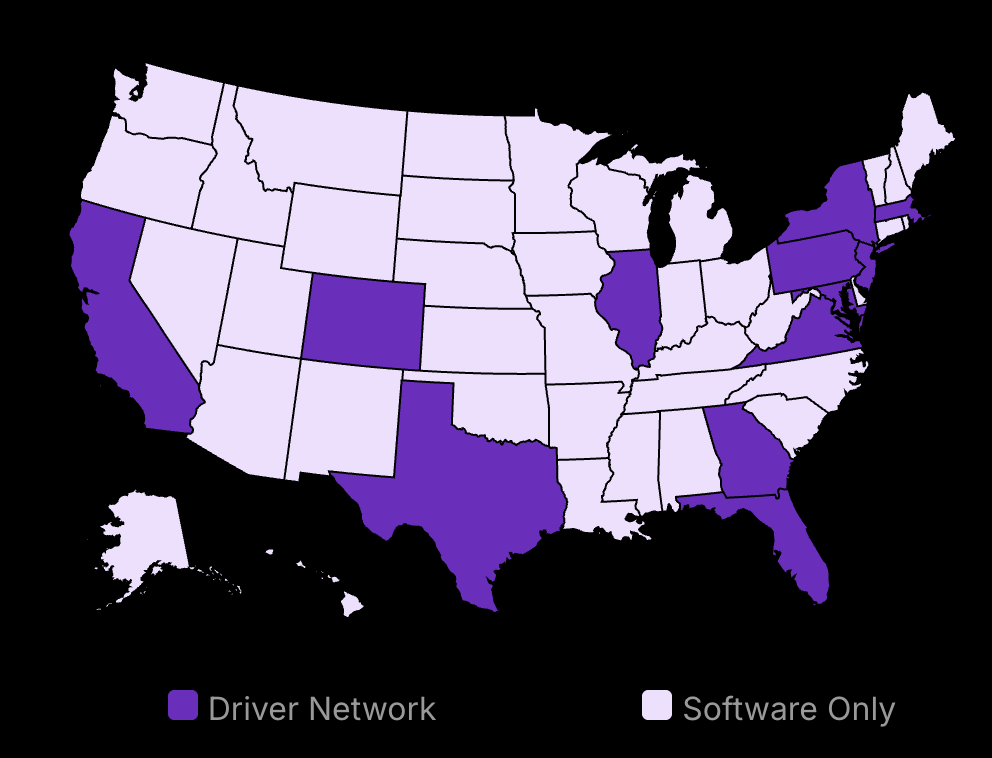Running small businesses in 2025 means facing a financial landscape that changes faster than most of us can keep up with. Between AI-driven market shifts, post-pandemic economic patterns, and increasingly complex tax regulations, your business finances need more than just basic bookkeeping. For many business owners, managing the company’s money is complex enough, but often their personal finances are deeply intertwined, creating unique financial planning challenges.
Business Outlook: 87% of small business owners feel optimistic about the future of their business in 2024, indicating a positive outlook despite challenges.
Most business owners tend to make a critical mistake: they wait until they’re drowning in financial problems before seeking help from a financial professional. By then, opportunities for growth and achieving financial success have vanished, and problems related to cash flow or business operations have grown. Effective planning for business owners requires proactive engagement.
What if the difference between struggling and thriving isn’t just how hard you work, but who you have advising your financial decisions? This is where a good business financial advisor comes in.
A great financial advisor doesn’t just track numbers—they are partners in strategic business planning, guiding you toward a stronger financial future. They often help integrate business owners financial planning with personal financial goals, incorporating elements of wealth management to build your personal wealth. Finding the right partner is extremely important. Yet trying to find financial advisors – the right financial planner for your specific needs – feels overwhelming when everyone claims to be an expert.
As someone running their own business, you’re already wearing too many hats. The thought of interviewing financial advisors, comparing credentials, understanding the services offered (like investment management, retirement plan options, or setting up key person insurance), and decoding fee structures just adds to your stress. It feels like you need to read dozens of business books just to start the search.
But what if you had a clear roadmap? What if you knew exactly what to look for, which questions to ask about potential tax benefits or financial projections, and how to spot red flags before signing any agreements?
In this guide, you’ll learn how to find an experienced advisor who truly understands small businesses and their specific needs, the credentials that matter in 2025, and the warning signs that should make you walk away immediately.
The right financial advisor can significantly impact your financial future, making the difference between barely surviving and confidently growing with solid business strategies. The wrong one can cost you more money than just fees—they can derail your business dreams entirely.
Let’s find you the financial partner your business deserves.

27% higher customer satisfaction
Professional delivery features:
- Real-time GPS tracking
- Automated ETA updates
- Delivery confirmation photos
- 27% higher delivery satisfaction
How to Choose the Right Financial Advisor for Your Small Business
Find advisors who specialize in small business finance and understand your industry
Verify credentials, reputation, and their approach to financial planning
Consider compatibility, fee structures, and availability before making your decision
Selecting a financial advisor is a critical decision that affects your business’s long-term success. Let’s examine how to find the right financial partner for your specific business needs.
Look for Specific Expertise in Small Business Finance
Finding an advisor who truly understands small business operations is essential. Generic financial advice rarely addresses the unique challenges small businesses face.
Small business financial advisors understand the specific tax considerations, cash flow challenges, and growth patterns that differ significantly from personal finance or large corporate finance. They’re familiar with business entity structures like LLCs, S-Corps, and partnerships, and how financial decisions impact both your business and personal finances—a critical consideration for small business owners whose personal and business finances often overlap.
When evaluating advisors, ask about their client portfolio. How many small businesses do they serve? What percentage of their practice focuses on businesses similar to yours in size and structure? An advisor who primarily works with small businesses will have developed strategies specifically tailored to the challenges you face.
Consult Small Business Development Centers
Beyond small business expertise, look for advisors familiar with your specific industry. Financial patterns, challenges, and opportunities vary widely across sectors. An advisor experienced in your industry will understand normal cash flow cycles, typical profit margins, and industry-specific tax considerations.
For example, retail businesses face different financial challenges than service-based businesses. Manufacturing companies have different capital investment needs than software companies. A restaurant advisor might understand seasonal fluctuations and food cost management, while a construction business advisor would be familiar with project-based cash flow and equipment financing.
When interviewing potential advisors, ask direct questions about their experience with businesses in your industry. Request case studies or examples of how they’ve helped similar businesses overcome financial challenges. A truly valuable advisor will be able to benchmark your financial performance against industry standards and identify areas where your business may be underperforming or excelling.
Verify Qualifications and Credentials
Professional credentials serve as a baseline indicator of an advisor’s knowledge and commitment to their profession. The financial advisory field includes numerous certifications, but not all are equally valuable for small business needs.
The Certified Financial Planner (CFP) designation indicates comprehensive financial planning knowledge and adherence to ethical standards. This credential requires passing a rigorous exam, completing education requirements, and maintaining continuing education. For small business needs, other valuable credentials include:
Certified Public Accountant (CPA): Indicates expertise in accounting, tax planning, and financial reporting
Chartered Financial Analyst (CFA): Focuses on investment management and financial analysis
Certified Business Financial Advisor (CBFA): Specializes in business financial planning
Certified Exit Planning Advisor (CEPA): Valuable if you’re considering eventual business succession or sale
Beyond formal credentials, verify the advisor’s regulatory standing. Use the SEC’s Investment Adviser Public Disclosure website or FINRA’s BrokerCheck to review their professional history and confirm they haven’t faced disciplinary actions or complaints. A clean regulatory record indicates the advisor maintains professional standards and ethical practices.
Ask potential advisors about their continuing education practices. Financial regulations and strategies change regularly, and you need an advisor who stays current. The best advisors invest significant time in ongoing professional development and can explain how they stay updated on changes relevant to small business finance.
Consider Their Approach to Financial Planning for Business Owners
The advisor’s planning philosophy and approach should align with your business needs and personal style. Some advisors provide comprehensive financial planning, while others focus on specific areas like investment management or tax planning. For most small businesses, a holistic approach that integrates business and personal financial planning provides the greatest value.
Client Preference Shift: 47% of wealth clients in 2023 preferred holistic advice across adjacent needs, up from 29% in 2018, indicating a growing demand for comprehensive financial planning.
During initial consultations, ask potential advisors to describe their planning process. How do they develop recommendations? How often do they review and adjust plans? The best advisors follow a structured process that begins with understanding your business goals, assessing your current financial situation, and developing tailored strategies to bridge the gap.
Look for advisors who prioritize individualized solutions over standard packages. Small businesses have unique needs that require customized approaches. Be wary of advisors who recommend identical strategies for all clients or push specific financial products before fully understanding your situation.
Risk Assessment and Management
How an advisor approaches risk management reveals much about their planning philosophy. Small businesses face numerous financial risks, including cash flow disruptions, economic downturns, legal liabilities, and unforeseen emergencies. A good advisor helps identify these risks and develops strategies to mitigate them.
Ask potential advisors how they incorporate risk management into their planning process. Do they recommend appropriate insurance coverage? Do they stress-test financial plans against various scenarios? How do they help businesses maintain adequate cash reserves while still pursuing growth?
Risk Management Approach: 36% of organizations use a hybrid approach to risk management, up 11% from 2021, indicating a trend towards more integrated risk management strategies.
This preparation significantly improved their ability to weather economic disruptions.
Evaluate Communication Style and Compatibility
The best advisor-client relationships are built on clear communication and mutual respect. You’ll be sharing sensitive financial information and making important decisions together, so personal compatibility matters. During initial meetings, assess whether the advisor listens carefully to your concerns and explains concepts clearly.
Financial advisors should translate complex financial concepts into practical business terms. They should explain not just what to do but why it matters for your business. If you leave meetings confused or overwhelmed, that’s a red flag. The right advisor will empower you through education, not mystify you with jargon.
Consider the advisor’s communication patterns. How quickly do they respond to questions? What methods do they use to stay in touch? How often will you meet to review progress? The frequency and format of communications should match your preferences and business needs. Some business owners prefer quarterly in-depth reviews, while others want more frequent, brief check-ins.
Ask about their client service model. Will you work directly with the advisor, or primarily with junior staff? Larger firms often use team approaches, which can provide broader expertise but sometimes at the cost of personal attention. Smaller practices may offer more individualized service but potentially narrower expertise.
Understand Fee Structures and Value Proposition
Financial advisors use various fee structures, each with advantages and disadvantages for small business clients. Common models include:
Fee-only: Charges based on hourly rates, flat fees for specific services, or a percentage of assets under management
Commission-based: Earns compensation through financial products they recommend
Fee-based: Combines fee-only services with some commission-based recommendations
For most small businesses, fee-only advisors offer the clearest alignment of interests, as they don’t have financial incentives to recommend specific products. However, their services sometimes cost more upfront than commission-based advisors.
Industry Fee Trend: By 2026, more than 77.6% of the wealth management industry is expected to operate on a fee-based model, reflecting a significant industry trend.
Beyond the fee structure, assess the value relative to cost. A good advisor should save or generate more value than they cost through tax strategies, improved cash flow management, better investment returns, and risk mitigation. Ask potential advisors to explain their value proposition—how specifically they believe they can improve your business’s financial position.
Advisor Fee Ranges: Financial advisor costs in 2025 vary, with hourly rates between $200 and $400, and fixed fees for detailed financial planning ranging from $7,500 to $55,000.
During this discussion, the advisor should be completely transparent about all fees and how they’re calculated. Request a written statement of all potential costs before engaging their services. Hidden fees or reluctance to discuss compensation fully are significant warning signs. In addition to financial expertise, some advisors utilize technological tools to enhance operational efficiencies such as advanced route optimization techniques. Implementing route optimization can streamline delivery logistics, reduce costs, and improve customer satisfaction, especially for small businesses with physical product distribution. Financial advisors familiar with these tools can integrate such strategies into your broader business planning for optimal results.
Check Availability, Long-Term Outlook, and Succession Planning
Your business will evolve over time, and your financial advisor should be prepared to grow with you. Consider whether the advisor has capacity to serve you properly and will remain available as your needs change.
Ask potential advisors about their client capacity. How many clients do they currently serve? What is their maximum? Overextended advisors may not provide the attention your business deserves. Similarly, inquire about their long-term professional plans. Are they nearing retirement? Planning to sell their practice? You want an advisor who will be available throughout your business journey.
Advisor Capacity: 28% of financial advisors say they do not have enough time to spend with clients, highlighting the importance of advisor availability and responsiveness.
The advisor’s business continuity plan matters too. What happens if they become incapacitated or unavailable? Do they have partners or associates who are familiar with your situation and can step in if needed? Business continuity planning indicates professionalism and consideration for client needs.
Advisor Succession: 20% of financial advisors are five years or less away from retirement, suggesting potential challenges in advisor continuity and succession planning.
For newer businesses, consider whether the advisor can scale their services as you grow. An advisor perfect for your startup phase might not have the expertise needed when you’re ready for expansion, acquisition, or exit planning. The ideal advisor grows with your business or can refer you to appropriate specialists when needed.
Finding the right financial advisor requires research and careful consideration, but the investment of time pays dividends through better financial outcomes for your business. Take your time with this decision—interview multiple candidates, check references, and trust your instincts about who will best serve your business’s unique needs.
Benefits of Hiring a Financial Advisor for Small Business Owners
TL;DR:
Financial advisors free up your time by handling complex money matters
They provide expert guidance on cash flow, investments, and tax strategies
The right advisor can significantly improve your business’s financial health and growth
Save time and focus on core business activities
Small business owners wear many hats, often juggling product development, customer service, marketing, and finances all at once. A financial advisor can remove the burden of complex financial management, allowing you to concentrate on what you do best—running your business.
Financial advisors bring specialized knowledge and experience that most business owners don’t possess. They’re trained to efficiently navigate financial complexities, completing tasks in a fraction of the time it might take someone without their expertise.
Delegating financial planning tasks
Financial planning involves numerous components: budgeting, forecasting, investment analysis, risk management, and more. A skilled advisor can take ownership of these tasks, bringing them together into a cohesive strategy. They handle the data collection, analysis, and reporting that otherwise would fall on your shoulders.
Financial advisors typically use specialized software and tools that streamline these processes. They maintain organized records, prepare financial statements, and generate reports that provide clear insights into your business’s financial health. This systematic approach removes the disorganization that often plagues small business financial management.
Reducing financial decision fatigue
Decision fatigue occurs when the quality of decisions deteriorates after making many decisions in succession. For small business owners, this phenomenon can be particularly damaging when it affects financial choices.
A financial advisor alleviates this burden by presenting organized information, outlining clear options, and providing recommendations based on expertise and experience. They can also serve as a sounding board for ideas, providing valuable perspective that helps prevent emotional or impulsive financial decisions.
This support is especially valuable during periods of business stress or rapid growth when decision-making capacity is already stretched thin.
Gain strategic financial insights
Financial advisors bring a level of strategic thinking that goes beyond basic bookkeeping. They analyze your business’s financial data to identify patterns, opportunities, and potential issues that might otherwise go unnoticed. This external, expert perspective often reveals blind spots in your financial strategy.
A good financial advisor doesn’t just report what has happened—they help forecast what will happen and recommend how to prepare. They connect financial metrics to business operations, helping you understand how day-to-day decisions impact your bottom line.
Modern financial advisors also bring competitive intelligence to the table. They often work with multiple businesses and have broad industry knowledge, allowing them to benchmark your performance against peers and industry standards. This comparative perspective helps you understand your business’s strengths and weaknesses in context.
Cash flow management
Cash flow problems sink more small businesses than lack of profitability. A financial advisor helps implement robust cash flow management systems that prevent these crises. They establish monitoring processes to track inflows and outflows, helping you anticipate and prepare for periods when cash might be tight.
Advisors often create cash flow forecasting models tailored to your business’s specific patterns. These models factor in seasonality, payment terms, inventory cycles, and other variables that affect when money comes in and goes out. With this information, you can make informed decisions about timing for purchases, hiring, expansions, or taking on debt.
The impact of good cash flow management is substantial. Another valuable tool that complements financial advising is a sophisticated route planner, which helps optimize logistics and delivery schedules for businesses with distribution or service routes. Efficient route planning can reduce transportation costs, improve customer satisfaction through timely deliveries, and increase overall operational efficiency. Integrating route planning technology into your business strategy aligns with comprehensive financial management by helping you minimize expenses and boost profitability. Learn more about effective route planning strategies and tools to enhance your business operations.
Financial Struggles: 82% of small businesses fail due to cash flow problems, highlighting the critical need for expert financial guidance.
Investment opportunities, market evaluation, and wealth management
A financial advisor helps identify appropriate investment opportunities for excess capital, balancing risk and potential returns. They evaluate options within the context of your overall business strategy and personal financial goals, rather than in isolation.
For many small business owners, the business itself is their primary investment. A financial advisor helps determine when to reinvest profits into the business versus diversifying into external investments. They can assess whether purchasing equipment, expanding facilities, hiring staff, or investing in marketable securities makes more financial sense at different stages of your business lifecycle.
Advisors also monitor market conditions and help time investments appropriately.
Improved financial security and growth potential
Financial advisors develop comprehensive risk management strategies that protect your business from unexpected events. They help identify potential financial threats—from economic downturns to supply chain disruptions—and create contingency plans to address them. This preparation builds resilience into your business model.
Beyond protection, advisors help optimize your financial structure to support growth. They assess whether your current capitalization can support your growth goals and recommend adjustments when needed.
Growth Strategy Focus: 95% of small business owners are planning to implement strategies within the next year to attract and retain employees, underlining the importance of human capital in business growth.
Financial advisors also help establish metrics and milestones to measure progress toward financial goals. This accountability and monitoring system keeps growth initiatives on track and allows for timely adjustments when performance deviates from targets.
Tax Planning and Strategy Optimization
Taxes represent a significant expense for most small businesses, and tax laws change frequently. Financial advisors help develop strategic approaches to managing tax obligations efficiently and legally. They work to structure your business operations, investments, and expansion plans in tax-advantaged ways.
A good financial advisor coordinates with your tax professional to implement year-round tax planning, not just tax-time preparation. This proactive approach identifies tax-saving opportunities throughout the year rather than discovering missed opportunities after the fact.
Financial advisors also help navigate industry-specific tax incentives and credits that many small business owners miss.
Tailored retirement plans for business owners and achieving personal financial goals
Many small business owners neglect personal retirement planning while focusing on growing their businesses. Financial advisors help create retirement strategies that account for your unique situation, where your business and personal finances are often intertwined.
Advisors can establish appropriate retirement vehicles like SEP IRAs, SIMPLE IRAs, or Solo 401(k)s that maximize tax advantages while building your nest egg. They help determine suitable contribution levels that balance current business needs with future security.
Financial advisors also assist with succession planning for your eventual exit from the business. They help determine the business’s value, identify potential successors, and structure the transition to maximize your financial benefit while preserving the business’s legacy.
Qualities of a Small Business Financial Advisor
Trust and communication form the foundation for effective financial advising relationships
Small business advisors need specialized problem-solving skills beyond general finance knowledge
Look for advisors with both technical expertise and interpersonal skills that match your business needs
Finding the right financial advisor for your small business requires looking beyond credentials and experience. The best advisors combine technical knowledge with character traits that enable productive, long-term partnerships. Their approach should align with your business values and communication style while offering specialized expertise for your industry challenges.
Assess Communication Skills
Clear communication serves as the backbone of any successful advisor-client relationship. The best financial advisors can translate complex financial concepts into plain language that business owners can understand and act upon. This skill becomes particularly valuable during market volatility or when explaining tax implications of business decisions.
This isn’t surprising when you consider that financial decisions impact every aspect of business operations. When interviewing potential advisors, pay attention to how they respond to your questions. Do they use excessive jargon? Do they take time to ensure you understand their explanations?
Regular updates on your financial status should be standard practice. Effective advisors establish communication protocols that match your preferences – whether through quarterly in-person meetings, monthly video calls, or regular financial reports with clear insights. They should proactively contact you when market conditions change or new opportunities arise, rather than waiting for you to reach out with questions.
Evaluate Problem-Solving Skills and Creativity
Small businesses face unique financial challenges that require innovative solutions. Unlike larger corporations, small businesses often operate with tighter cash flows, limited access to capital, and fewer internal resources. The best financial advisors demonstrate creative problem-solving abilities that address these specific challenges.
When interviewing potential advisors, ask about specific cases where they’ve helped similar businesses overcome financial obstacles. Look for evidence of lateral thinking and customized approaches rather than one-size-fits-all solutions. For example, an advisor might help a seasonal business establish a unique cash management system that accounts for revenue fluctuations throughout the year.
Proactive risk identification represents another crucial problem-solving skill. Exceptional advisors don’t just react to problems as they arise; they anticipate potential financial risks before they materialize. This might include identifying tax law changes that could affect your industry, recognizing early warning signs of cash flow problems, or spotting market shifts that could impact your supply chain costs.
Verify Industry-Specific Experience
Financial advisors with experience in your particular industry bring valuable context to their recommendations. Industry-specific knowledge allows advisors to benchmark your financial performance against relevant competitors and understand the unique cash flow patterns, regulatory considerations, and growth challenges of your business sector.
A restaurant-focused financial advisor, for instance, will understand typical food cost percentages, labor modeling, and seasonal revenue fluctuations. Similarly, an advisor experienced with construction companies will understand progress billing, equipment financing options, and surety bond requirements. This specialized knowledge means less time explaining industry basics and more time developing targeted financial strategies.
When evaluating industry experience, look beyond general statements. Ask potential advisors about specific examples of work with businesses in your sector. Request case studies showing how they’ve helped similar companies overcome financial challenges. Industry-experienced advisors should be able to speak knowledgeably about sector-specific metrics and benchmarks without hesitation.
The best industry-specialized advisors also maintain connections with other professionals serving your sector, including specialized lenders, insurance providers, and legal experts. These networks can prove invaluable when your business needs specialized services or faces industry-specific challenges.
Look for Financial Technology Proficiency
In 2025, technology proficiency will become a non-negotiable quality for effective financial advisors. The best advisors leverage specialized software tools to provide more accurate forecasting, detailed analysis, and streamlined reporting for their small business clients.
Technology Adoption: 68% of small business owners believe AI and automated solutions are beneficial, suggesting a growing reliance on technology in financial planning.
Financial advisors should demonstrate comfort with modern accounting platforms like QuickBooks, Xero, or NetSuite, which many small businesses use. More importantly, they should be proficient with financial planning software that can model different business scenarios and illustrate potential outcomes visually.
Beyond software proficiency, forward-thinking advisors stay informed about emerging fintech trends that might benefit your business. These could include specialized payment processing solutions, AI-powered cash flow forecasting tools, or automated tax preparation services. Ask potential advisors about which technology tools they recommend and how they stay current with new financial technologies.
Future Tech Plans: 79% of small business owners who don’t currently use AI plan to implement AI or automated solutions in the next year, reflecting a trend towards digital transformation.
The most technology-savvy advisors also maintain strong data security practices. With financial data becoming increasingly valuable to cybercriminals, your advisor should implement robust protection measures and be able to explain their approach to safeguarding your sensitive information.
Prioritize Trustworthiness and Transparency
Perhaps the most critical quality in a financial advisor is trustworthiness. Your advisor will have access to sensitive financial information and significant influence over decisions that impact your business’s future. Their integrity must be beyond question.
Transparent advisors clearly explain all costs associated with their services upfront. They disclose any potential conflicts of interest, such as commissions they might receive from recommending certain products. They should willingly provide their Form ADV (the uniform form used by investment advisors to register with the SEC), which contains information about their business practices, fees, disciplinary history, and potential conflicts of interest.
You can verify an advisor’s trustworthiness through multiple channels. Check their registration and disciplinary history through the SEC’s Investment Adviser Public Disclosure website or FINRA’s BrokerCheck tool. Request references from current clients, particularly those with businesses similar to yours. Professional associations like the Financial Planning Association or the National Association of Personal Financial Advisors can also provide information about an advisor’s standing in the professional community.
Fiduciary Commitment and Ethical Standards
The highest standard of trustworthiness comes from advisors who operate under a fiduciary duty. Fiduciaries are legally obligated to put their clients’ interests first and must disclose any potential conflicts of interest. Not all financial advisors are fiduciaries—some are held only to a “suitability” standard, which requires recommendations to be suitable but not necessarily optimal for the client.
When interviewing potential advisors, directly ask if they will act as a fiduciary in all interactions with your business. The answer should be an unequivocal “yes,” ideally backed by a written fiduciary pledge. This commitment provides significant protection for your business interests and helps ensure advice is truly aligned with your goals rather than the advisor’s compensation structure.
Ethical standards extend beyond the fiduciary relationship. Look for advisors who demonstrate clear boundaries, respect confidentiality, and show consistent ethical behavior in all professional interactions. Their reputation within the business community can provide valuable insights into their ethical standards. Professional designations like the CFP® (Certified Financial Planner) also require adherence to ethical codes of conduct, offering additional assurance of professional integrity.
Assess Availability and Responsiveness
A financial advisor’s expertise has limited value if they’re inaccessible when you need them. Small businesses often face time-sensitive financial decisions that require prompt guidance. Your advisor’s availability should align with your business needs and communication preferences.
During initial consultations, discuss response time expectations clearly. How quickly will the advisor return calls or emails? What is their process for handling urgent matters? Will you work directly with the advisor or primarily with support staff? These questions help establish clear communication protocols and prevent future frustrations.
Consider the advisor’s current client load as well. Some advisors maintain smaller client rosters to provide more personalized service, while others leverage larger teams to serve more businesses. Neither approach is inherently better, but understanding their client service model helps set realistic expectations about availability.
The best advisors balance responsiveness with proactive communication. Rather than simply reacting to your inquiries, they should initiate regular check-ins and updates. This proactive approach demonstrates commitment to your business success and helps prevent financial issues before they become critical problems.
For businesses with seasonal fluctuations or predictable busy periods, discuss how the advisor handles periods of increased demand for their services. Will they be available during your tax preparation season or year-end financial reviews? Clear expectations about availability during critical periods help ensure you’ll have support when it matters most.
2025 Trends: Evaluating Financial Advisor Fees for Small Businesses
TL;DR:
Fee-based and flat-rate models are replacing traditional commission structures
Small businesses benefit from understanding fee structures before negotiating services
Financial advisor fee structures are changing rapidly as we move through 2025. Small business owners need to understand these changes to make informed decisions about financial guidance. The cost of professional financial advice varies based on the advisor’s experience, location, and the complexity of your business needs.
How Fee Structures Are Evolving in 2025
The financial advisory industry has shifted away from commission-based compensation toward more transparent fee models. This shift benefits small businesses by creating clearer expectations about costs and reducing potential conflicts of interest.
In 2025, the most common fee structures for small business financial advisors include:
Assets Under Management (AUM): Advisors charge a percentage of the total assets they manage for your business. This model works well for businesses with significant investment portfolios but may not be cost-effective for companies with limited investable assets.
Flat Fee: This provides budget certainty and works well for businesses seeking ongoing financial guidance without large investment portfolios.
Hourly Rates: This works well for businesses needing limited, specific advice rather than comprehensive ongoing management.
Project-Based Fees: This structure works well for businesses needing help with particular financial challenges or planning exercises.
Industry Fee Trend: By 2026, more than 77.6% of the wealth management industry is expected to operate on a fee-based model, reflecting a significant industry trend.
Financial advisory fees are not standardized across the industry, which is why understanding typical ranges helps when evaluating potential advisors for your small business.
Increase in Fee-Based and Flat-Rate Options
The trend toward fee-based and flat-rate pricing models has accelerated in 2025, with small businesses leading the demand for these more predictable structures. This shift stems from businesses wanting greater cost certainty for budgeting purposes.
Advisor Revenue Shift: 54% of financial advisors expect at least 90% of their revenue to come from advisory fees by 2025, indicating a shift towards fee-based compensation models.
Fee-based models create a more transparent relationship between advisors and clients. When advisors earn the same amount regardless of which financial products they recommend, they can focus entirely on what best serves your business needs rather than what generates the highest commissions.
The shift toward flat fees has several advantages for small businesses:
Predictable budgeting for financial advisory services
Easier comparison between different advisors’ offerings
Reduced concern about advisor recommendations being influenced by commissions
More straightforward evaluation of the value received for fees paid
When considering flat fee arrangements, ask potential advisors exactly what services are included and which might incur additional costs. Some advisors advertise low flat fees but then charge extra for services you might assume are included.
Popularity of Performance-Based Fees
Performance-based fee structures have gained significant traction among small business financial advisors in 2025. This model ties advisor compensation directly to measurable business outcomes, creating strong alignment between advisor incentives and client success.
In a performance-based arrangement, the advisor receives a base fee plus additional compensation when certain financial targets are met. These targets might include:
Revenue growth exceeding industry benchmarks
Cost reduction milestones
Successful capital raising
Improved profit margins
Increased business valuation
For small businesses concerned about getting tangible value from their financial advisor, performance-based fees offer a compelling structure. The advisor has direct financial motivation to help your business succeed rather than simply manage assets or provide generic advice.
This reduces the upfront cost while motivating advisors to deliver measurable results. Small businesses with growth ambitions often find this arrangement particularly appealing.
Before agreeing to a performance-based structure, ensure that:
Performance metrics are clearly defined and measurable
Benchmarks are reasonable and attainable
The calculation methodology is transparent
The time frame for evaluation is appropriate (quarterly or annual)
There are safeguards against excessive risk-taking to achieve short-term goals
The growing popularity of these arrangements reflects the broader shift toward accountability in financial advisory relationships. Small businesses increasingly expect advisors to demonstrate concrete value rather than simply charge for access to expertise.
Tips for Negotiating Fees with Financial Advisors
Understanding Fee Disclosure Agreements
Fee disclosure agreements have become more comprehensive in 2025, providing greater transparency about advisor compensation. These documents outline all fees, potential conflicts of interest, and the complete cost structure of the advisory relationship.
When evaluating a fee disclosure agreement, pay special attention to:
Direct fees: What you pay directly to the advisor (AUM fees, flat fees, hourly rates)
Indirect fees: Costs embedded in recommended financial products
Fee breakpoints: Any reductions in percentage rates as asset levels increase
Fee adjustments: Circumstances that might trigger fee changes
Termination costs: Any penalties or fees for ending the relationship early
Regulatory changes in 2024 strengthened disclosure requirements, but the quality of disclosures still varies significantly between advisors. Look for advisors who provide clear, plain-language fee explanations rather than burying important details in complicated legal documents.
Request a written breakdown of all potential fees before signing any agreement. This should include not just the advisor’s fees but also any costs associated with implementing their recommendations. Some advisors may charge relatively low direct fees but then recommend financial products with high embedded costs.
Assessing Value Delivered Relative to Fees Charged
The key question in evaluating financial advisor fees isn’t simply “How much does it cost?” but rather “What value am I receiving for this cost?” Small businesses should establish clear expectations about deliverables and measure advisor performance against these standards.
When assessing value relative to fees, consider:
Quantifiable financial improvements: Tax savings, cost reductions, improved cash flow, investment returns
Time savings: Hours you no longer spend on financial management
Risk reduction: Improved compliance, better insurance coverage, reduced liability
Strategic guidance: Business growth assistance, succession planning, capital acquisition support
Financial education: Your improved understanding of business finances
Establish a formal review process to evaluate your advisor’s contribution to your business. Many small business owners conduct quarterly evaluations of advisor performance against predetermined objectives, with a comprehensive annual review of the relationship’s overall value.
Be prepared to explain your value expectations clearly when negotiating fees. Advisors are often willing to adjust their fee structure if you can articulate exactly what you need and how you’ll measure success.
Negotiating Fee Reductions and Service Adjustments
Most financial advisors have flexibility in their fee structures, particularly for long-term relationships. Small businesses can often negotiate reduced rates or enhanced service packages based on their specific needs.
Effective strategies for fee negotiations include:
Request fee tiering: As your business assets grow, the percentage fee should decrease. Many advisors automatically tier fees, but others will only do so if requested.
Bundle services: If you need multiple services (financial planning, tax strategy, investment management), request a package discount rather than paying for each separately.
Propose alternative structures: If an advisor typically charges AUM fees but your business has limited investable assets, propose a flat fee arrangement that works for both parties.
Discuss service level adjustments: You may not need every service the advisor offers. Create a customized package that includes only what your business requires.
Compare competitive offers: Research what other advisors charge for similar services and use this information in your negotiations.
When negotiating, focus on creating a win-win relationship rather than simply driving down costs. The lowest-cost advisor isn’t necessarily the best value if they provide limited service or have less expertise in your industry.
Asking the Right Questions About Fees
During initial consultations with potential financial advisors, ask specific questions about their fee structure to avoid surprises later. These questions help clarify the true cost of the advisory relationship.
Key questions to ask include:
“What is your complete fee structure, including all potential charges?”
“Are there additional costs beyond your direct fees that I should know about?”
“How do you handle fee adjustments as my business grows or changes?”
“What specific deliverables will I receive for these fees?”
“How do your fees compare to industry standards for businesses of my size and complexity?”
“Are there ways to reduce fees while maintaining essential services?”
“How do you demonstrate the value you provide relative to the fees charged?”
“What would trigger a fee increase, and how much notice would I receive?”
“Are there any termination fees or penalties if I end our relationship?”
“Can you provide a sample invoice showing exactly how fees would be calculated and presented?”
Document the answers to these questions and ensure they match what appears in the formal agreement. Any discrepancies between verbal promises and written terms should be resolved before signing.
Evaluating Fee Transparency and Disclosure Practices
Transparency about fees has become a competitive advantage for financial advisors in 2025. The most reputable advisors provide clear, comprehensive fee information upfront rather than revealing costs gradually throughout the relationship.
Signs of good fee transparency include:
Proactive disclosure: The advisor volunteers complete fee information without being asked
Clear documentation: Fee structures are explained in plain language, not buried in fine print
No surprise charges: All potential costs are disclosed upfront
Regular fee reviews: The advisor periodically evaluates whether their fee structure remains appropriate for your business
Willingness to explain: The advisor patiently answers all fee-related questions
Competitive context: The advisor can explain how their fees compare to industry norms
Be cautious of advisors who are evasive about their full compensation structure or who emphasize that certain fees are “standard industry practice” without providing specific information. True transparency means full disclosure of all costs, even when they’re indirectly paid through recommended financial products.
When reviewing fee disclosures, check that they cover all of the advisor’s potential compensation sources, including:
Direct fees paid by your business
Commissions on recommended products
Referral fees from other service providers
Revenue sharing arrangements with financial institutions
Fees for additional services beyond the basic agreement
The financial advisory industry has moved toward greater fee transparency in recent years, but significant variations still exist between individual advisors and firms. Choose advisors who embrace full transparency as a core value rather than those who reluctantly comply with minimum disclosure requirements.
2025 Predictions: Red Flags for Financial Advisors
Protect your business: Learn to spot warning signs before they impact your bottom line
Save time and money: Avoid advisors who don’t align with your business goals
Find trustworthy guidance: Identify true experts from those who just talk a good game
1. Lack of Transparency in Fees and Charges
Financial advisors who hide or obscure their fee structures should raise immediate concerns. In 2025, transparency has become more than just a buzzword—it’s a fundamental expectation in the financial advisory industry. According to industry analysis, transparency is now considered a basic pillar of investor empowerment, not just something required by regulations.
When meeting with potential advisors, pay attention to how they discuss compensation. A trustworthy advisor will clearly outline all fees upfront, including management fees, transaction costs, and any other charges that might impact your bottom line. They should be able to explain in plain language exactly how they make money from your relationship.
Hidden fees can significantly erode your returns over time. When advisors are reluctant to provide clear fee breakdowns or deflect questions about compensation, consider this a major warning sign.
Common Hidden Fee Structures to Watch For
Be particularly watchful for advisors who use complex fee arrangements that make it difficult to understand the total cost of their services. These might include:
Account maintenance fees disguised as “administrative costs”
Platform fees buried in fine print
Surrender charges for changing investment strategies
Revenue sharing arrangements with product providers
Markups on bonds or other securities
Research by Trust & Will’s 2025 Annual Financial Advisor Report found that fee transparency ranks among the top three factors that build client trust.
2. Pressure Sales Tactics
High-pressure sales tactics reveal an advisor who prioritizes their commission over your business needs. In 2025, as regulatory bodies like the SEC increase scrutiny on advisory practices, ethical advisors have moved away from aggressive sales approaches entirely.
When an advisor pushes you to make quick decisions without adequate explanation or time for consideration, this signals potential conflicts of interest. Financial decisions for your business should never feel rushed—good advisors understand that thoughtful planning takes time and careful consideration.
Watch for advisors who present investments as “limited-time opportunities” or use fear-based tactics to prompt hasty decisions. These pressure techniques often mask the sale of products that generate high commissions but may not align with your business goals or risk tolerance.
Signs of Commission-Driven Recommendations
Pay close attention to advisors who consistently recommend proprietary products from their own firm. While these aren’t automatically bad investments, they often carry higher fees that benefit the advisor and their company more than you. A true fiduciary will recommend the best products for your situation regardless of their compensation.
Another red flag is an advisor who seems more interested in selling products than understanding your business. Before suggesting any financial product, a quality advisor should thoroughly assess your business model, cash flow patterns, growth plans, and risk tolerance. Recommendations that come before this discovery process likely aren’t tailored to your specific needs.
The book “The Investment Answer” by Daniel C. Goldie and Gordon S. Murray provides an excellent framework for understanding how conflicts of interest influence financial advice. It explains how sales incentives can distort recommendations and offers practical guidance on distinguishing sales pitches from objective advice.
3. Negative Client Reviews or Complaints
In 2025’s digital landscape, advisor reputation is more visible than ever. Before engaging with any financial advisor, conduct thorough online research. Check their Google Business profile, industry review sites, and social media mentions. Patterns of negative feedback, especially around similar issues, warrant serious consideration.
More importantly, verify an advisor’s disciplinary history through official channels. The SEC’s Investment Adviser Public Disclosure (IAPD) website and FINRA’s BrokerCheck tool remain essential resources for checking an advisor’s regulatory record. These databases reveal formal complaints, regulatory actions, and legal disputes that might not appear in public reviews.
These regulatory actions often correlate with client complaints and negative reviews, demonstrating the connection between regulatory compliance and client satisfaction.
Evaluating Complaint Patterns
Not all complaints carry equal weight. A single dissatisfied client among hundreds of happy ones might represent an outlier experience. However, recurring themes in negative feedback deserve attention:
Complaints about communication breakdowns
Mentions of unexpected fees or costs
Accusations of unsuitable investment recommendations
Reports of unauthorized trading
Concerns about response times or availability
When evaluating negative feedback, consider both the volume and the substance. while a single complaint about investment performance might reflect market conditions rather than advisor misconduct.
Remember that investment performance will naturally vary—no advisor can guarantee returns. Red flags appear when complaints suggest ethical lapses, poor service quality, or failure to meet professional standards. These indicators often predict future problems in the advisor-client relationship.
4. High Advisor Turnover Rates
Frequent advisor changes within a firm should raise immediate concerns. In this competitive environment, high-quality advisors are in demand and typically maintain stable employment.
High turnover often signals deeper issues within the firm—perhaps unrealistic sales targets, poor management practices, or compensation structures that don’t reward client service. When advisors frequently leave, client relationships suffer as institutional knowledge about your business needs disappears with each departure.
Ask prospective advisors directly about their tenure, both at their current firm and in the industry overall. Experienced advisors with long-term client relationships typically provide more consistent service and have proven their ability to guide clients through various market cycles and economic conditions.
Questions to Ask About Firm Stability
When interviewing potential advisors, include these questions to assess firm stability:
“What is the average tenure of advisors at your firm?”
“How long have you personally been with this firm?”
“What is your client retention rate?”
“How does your firm handle advisor transitions when they occur?”
“What systems are in place to maintain continuity if my advisor leaves?”
High-quality advisory firms maintain detailed records of client information and investment strategies, ensuring smooth transitions when staff changes occur. They also typically have team-based approaches where multiple professionals understand each client’s situation.
The book “The New Fiduciary Standard” by Tim Hatton provides valuable insights into evaluating firm stability and how it affects long-term client service quality. It discusses how organizational culture influences advisor behavior and client outcomes—essential knowledge when selecting a financial partner for your business.
5. Limited or No Access to Past Client References
Reputable financial advisors build their practice on satisfied client relationships. When an advisor cannot or will not provide references from existing clients with situations similar to yours, this reluctance should raise questions about their track record.
While client confidentiality is important, established advisors typically maintain relationships with clients willing to share their experiences. These references provide valuable insights into the advisor’s communication style, responsiveness, and effectiveness that can’t be gleaned from marketing materials or initial consultations.
In 2025, transparency and authentic engagement are emphasized as key differentiators for successful firms. Advisors who truly deliver value are generally proud to connect prospective clients with satisfied existing clients (with appropriate permissions, of course).
Alternatives When References Aren’t Available
If an advisor cites confidentiality concerns about providing direct references, there are alternative ways to assess their client relationships:
Ask for anonymized case studies of similar businesses they’ve helped
Request testimonials or reviews that have been approved for sharing
Inquire about their longest-standing client relationships and outcomes
Look for industry recognition or peer endorsements
Check for published thought leadership demonstrating their expertise
Be particularly wary if the advisor deflects all these alternatives or provides only vague answers about their client base. This pattern may indicate limited experience with businesses like yours or a lack of long-term successful client relationships.
The widely-respected book “The Trusted Advisor” by David Maister explains why reference availability signals trustworthiness. It details how transparency in sharing client experiences demonstrates confidence in service quality—a crucial consideration when selecting a financial partner for your business.
The 8020 Rule and Its Application to Financial Advisors
The 80/20 rule (Pareto Principle) applies powerfully to financial advisory relationships. Understanding this principle helps small business owners evaluate where they might stand in an advisor’s client hierarchy.
This doesn’t necessarily indicate poor service, but it can affect response times and the depth of customized advice you receive.
When interviewing potential advisors, ask about their typical client profile and where your business would fit within their practice. The best advisor-client relationships occur when your business represents a meaningful but not overwhelming portion of the advisor’s book—large enough to warrant attention but not so large that it creates dependence.
Fee Considerations in Advisor Selection
The answer depends on several factors:
The complexity of your business finances
The scope of services provided beyond investment management
The advisor’s specialized knowledge of your industry
The time saved by delegating financial planning tasks
The measurable improvements in financial outcomes
In these cases, flat-fee or hourly arrangements often provide better value.
The key is determining whether the advisor’s services generate returns (either in growth or saved time/resources) that exceed their cost.
Conclusion
Selecting the right financial advisor or financial planner for your small business is a strategic decision that shapes your company’s finances and your personal financial future. As we’ve seen throughout this guide, the best advisors bring specialized expertise in business owners financial planning, solid credentials, and a personalized approach to your unique financial planning challenges. They understand that effective planning for business owners requires integrating business goals with personal financial planning. They free up your time while providing critical insights on cash flow management, investment management, financial projections, maximizing tax benefits, structuring a retirement plan, considering key person insurance, optimizing employee benefits, and even building emergency savings.
The right experienced advisor should demonstrate clear communication, creative problem-solving aligned with your business strategies, and absolute transparency—especially regarding fees. As 2025 brings new fee structures like performance-based models, understanding these costs, which directly impact how much more money stays in your business or contributes to your personal wealth, becomes even more important. They help align your business operations with your personal financial situation and personal goals.
Business owners should remember to watch for red flags: hidden fees, high-pressure sales tactics, negative reviews, advisor turnover, and reluctance to provide references. These warning signs often reveal advisors who won’t serve your best interests. Consulting resources from the Small Business Administration (SBA) can sometimes provide additional context. Another valuable resource for small business owners is seeking guidance through entrepreneurship mentoring programs. These programs provide personalized support and expertise, helping sharpen your financial decision-making skills and navigate the challenges of growing your business. Engaging with a mentor can complement the services of your financial advisor and expand your network with experienced professionals. To learn more about how to leverage these programs, explore our detailed guide on effective entrepreneurship mentoring.
Take your time as you find financial advisors. This decision is extremely important. Interview multiple candidates. Check credentials. Ask tough questions about their approach, services offered, and fees. Your business deserves a financial partner who truly understands your goals for both the company’s finances and your long-term financial success, and has the skills to help you achieve them. One important resource that many business owners overlook is mentorship. Finding a mentor who has navigated the challenges of business growth can provide invaluable insights and accelerate your success. Mentors offer personalized advice based on real-world experience and can help you avoid common pitfalls. For those looking to build this supportive relationship, this comprehensive guide on effective ways to find and work with a mentor can be a game changer.
A good business financial advisor isn’t just a service provider—they’re a strategic partner in your journey, helping navigate the complexities of business finances and personal finances to build the future you envision.



























